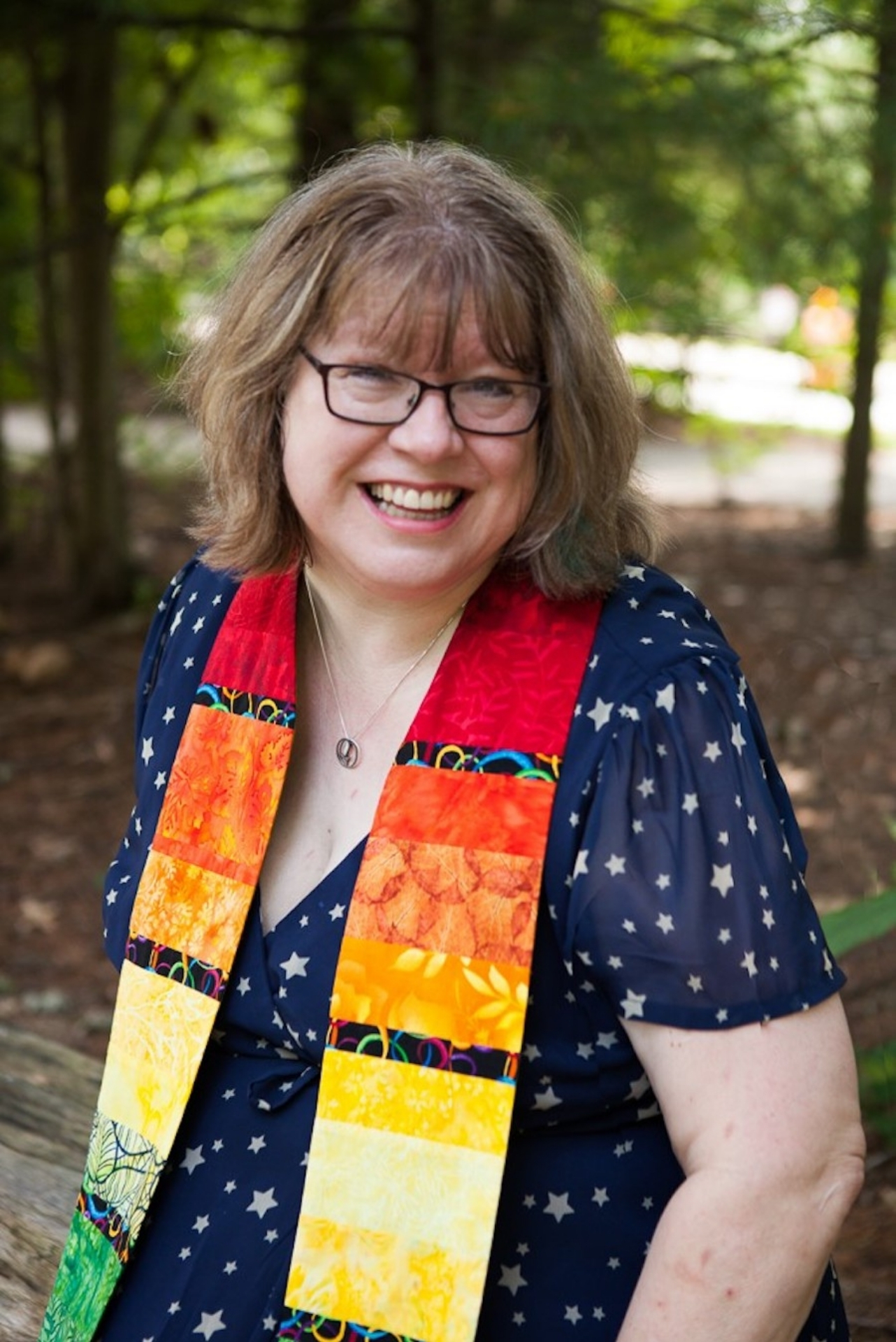By Rev. Kimberley Debus
As a young queer cis woman in the ‘70s and ‘80s, I was already the beneficiary of those who came before. In my teens, I was introduced to the music of Chris Williamson, Meg Christian, and Holly Near. I discovered Rita Mae Brown’s novel Rubyfruit Jungle and the poetry of Adrienne Rich. As the ‘80s became the ‘90s, I cheered when Ellen came out on national television, and when Melissa Etheridge and k.d. lang came out through their music and concerts.
These were my heroes. Women a half generation before me, showing me that it was possible to be queer. I wore my lesbian identity proudly, being part of a Lesbian Avengers group, belonging to a lesbian chorus, organizing pride marches and events for women-only spaces. I had dozens of older sisters, cheering me on, grateful for my youth and energy.
And something was still missing.
I suppose I always knew I was bisexual; my crushes and early sexual experiences were with both boys and girls (we still thought gender was binary then). But after some disastrous relationships with men, I fell in love with a woman, and decided that was it. I was a lesbian. And the impulse to lean into the sisterhood was strong, and comforting, and helped me forge an identity and a place I thought I could call home.
Yet the crushes on men continued, and I kept them like a dirty secret. I remember telling the first partner I thought I could trust with this, and while Trish accepted it joyfully, she issued a stern warning: “Do not tell anyone about this.”
Trish’s words reinforced the secret, even as we worked tirelessly under the LGBT banner. We were so proud to have fought for the inclusion of a trans woman into our midst. We professed, “It doesn’t matter who you love, love is love.” Yet for all of our rhetoric, it was clear that this community did not believe the B. I grew to understand the B as meaning “not really gay” or “can’t make up their minds” or “horndog” or “we want a threesome.”
After Trish died in 1998, I found comfort not from my gay and lesbian friends, but from my straight male friends. They seemed to hear the pain in my heart—especially one friend, Mark. Mark’s comfort was inviting, and my relationship with him did turn romantic for a while. And that was fine. My mistake was telling my lesbian friends, who branded me a traitor to the sisterhood, who called me a “hasbian,” and then proceeded to ostracize me from the community I had loved and served in for years.
There was nowhere to turn. No heroes to look toward for inspiration or comfort. I had no community left and decided that since I was not attracted to women at the moment, my lesbian days were over. I was…well, I didn’t know what I was. When I started dating again, I dated men, some of whom thought my past relationships with women were a turn-on, and some of whom tried to convince me that I was straight now.
And something was still missing.
What was missing, it turns out, was not a hero to look up to, or a community to define me, but a simple way to define myself. It was the simple definition from Robyn Ochs, in her 2014 essay “Bisexuality 101”:
“Bisexuals are people who acknowledge in themselves the potential to be attracted—romantically and/or sexually—to people of more than one gender, not necessarily at the same time, not necessarily in the same way, and not necessarily to the same degree.”
I was bisexual all along and didn’t know I could claim the B. I didn’t know, because there were no heroes for me as a young bisexual person. I didn’t know because the community drew the circles too tightly. I didn’t know because there were no out bisexuals in the media to look to.
I am now an out, loud, and proud bisexual. I am bi in my relationships, bi in my attitude, bi in the pulpit.
The philosopher Søren Kierkegaard said that life is lived forward but understood backward. Here in my mid-50s, I look back on this journey and see that, in fact, I was the hero I had long sought. I blazed my own path, held my own romantic and often wounded heart, and affirmed to myself and the world that there will be better days when we embrace our truths.
Rev. Kimberley Debus (she/her) is a Unitarian Universalist consulting minister based in Saratoga Springs, NY, inspiring an artful and art-filled faith. Her work as a consultant and a performing artist affirms her commitment to liberation and radical welcome.

